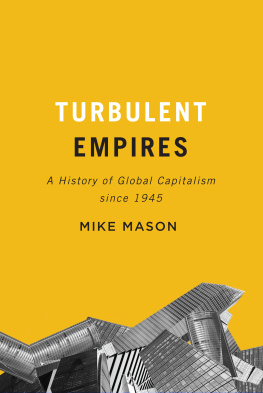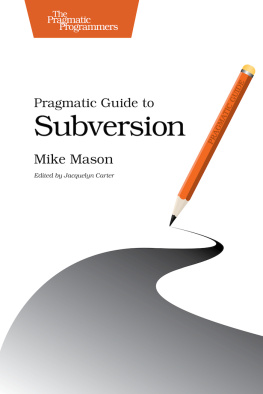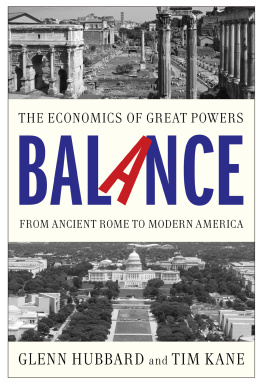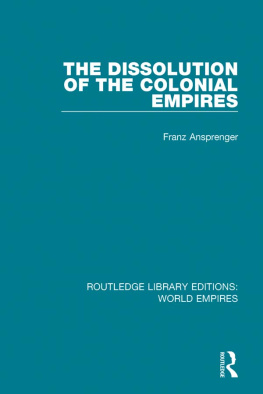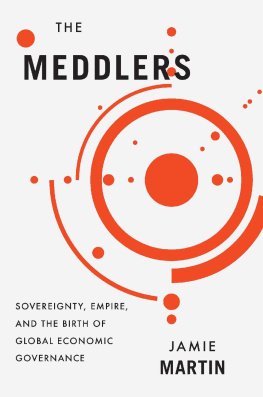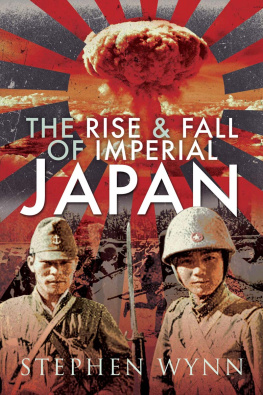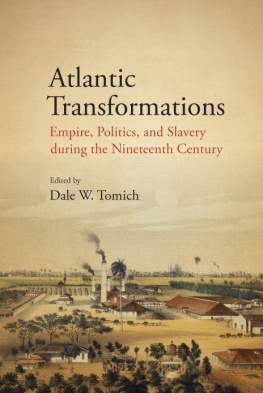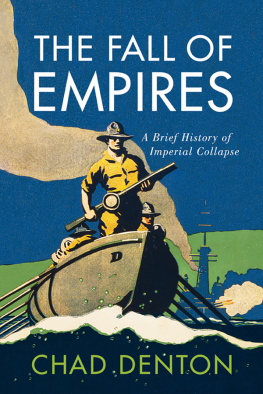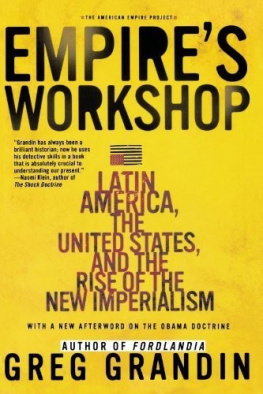
TURBULENT EMPIRES
TURBULENT EMPIRES
A History of Global Capitalism since 1945
MIKE MASON
McGill-Queens University Press
Montreal & Kingston London Chicago
McGill-Queens University Press 2018
ISBN 978-0-7735-5321-7 (cloth)
ISBN 978-0-7735-5435-1 (ePDF)
ISBN 978-0-7735-5436-8 (ePUB)
Legal deposit second quarter 2018
Bibliothque nationale du Qubec
Printed in Canada on acid-free paper that is 100% ancient forest free (100% post-consumer recycled), processed chlorine free.
This book has been published with the help of a grant from the Canadian Federation for the Humanities and Social Sciences, through the Awards to Scholarly Publications Program, using funds provided by the Social Sciences and Humanities Research Council of Canada.

We acknowledge the support of the Canada Council for the Arts, which last year invested $153 million to bring the arts to Canadians throughout the country. Nous remercions le Conseil des arts du Canada de son soutien. Lan dernier, le Conseil a investi 153 millions de dollars pour mettre de lart dans la vie des Canadiennes et des Canadiens de tout le pays.
Library and Archives Canada Cataloguing in Publication
Mason, Mike, 1938, author
Turbulent empires : a history of global capitalism since 1945 / Mike Mason.
Includes bibliographical references and index.
Issued in print and electronic formats.
ISBN 978-0-7735-5321-7 (cloth). ISBN 978-0-7735-5435-1 (ePDF). ISBN 978-0-7735-5436-8 (ePUB)
1. Capitalism History 20th century. 2. Capitalism History 21st century. 3. History, Modern 20th century. 4. History, Modern 21st century. 5. Imperialism. I. Title.
HB501.M52 2018 | 330.12'20904 | C2017-907846-1 |
C2017-907847-X |
This book was typeset by True to Type in 10.5/13 Sabon
Contents
Acknowledgments
Due to my faulty memory, not all of those to whom I am indebted for ideas and interpretations am I able to acknowledge. But of those whose influence has remained indelible even over fifty years, I would like to remember those who taught me at UBC: Ronald Dore, Ping-ti Ho, and James Shirley in Asian studies; Fredrick Soward, John Norris, and Alf Cooke in history; and Stanley Z. Pech and Tadeusz Halpert Scanderbeg in Slavonic studies. Wayne Suttles introduced me to anthropology, a subject I subsequently studied at the University of Birmingham with R.E. Bradbury.
Among my colleagues and friends at universities in Canada, Britain, and Nigeria, I recall with great relish Robin Porter, sometime mandarin at the British embassy in Beijing, with whom I shared an early, and likely unjustified, enthusiasm for revolutionary China, and Emily Hill who supported me in more ways than one at Queens. David Parker, also at Queens, guided me in Latin American history. Much of my limited grasp of Indian history I owe to John Hill, who supplied me with inexpensive texts bought in India, Depunkar Gupta of JNU, and to Paritosh Kumar of Queens who has tried to keep me up to date on Indian politics and Bollywood movies. Keith Meadowcroft was my first dragoman in India and Anthony Harris introduced me to further readings in development.
The expansion of my interest in the Middle East and Maghreb I owe to having taught mainly Muslim students in secondary school and university in Nigeria. At the Centre of West African Studies of the University of Birmingham I wrote a thesis on a nineteenth-century Muslim emirate in what is today Nigeria. At Ahmadu Bello University, where I was a Commonwealth scholar and then a lecturer, I was encouraged to think of the African Sahel and Sudan regions not so much as parts of a generalized and ethnicized Africa, as is conventional, but as a regions within the wide and cosmopolitan dar al-islam. The Nigerians and others with whom I studied West African history are too numerous to mention although I would like to recall especially the late John Lavers of Kano, Murray Last, latterly editor of Africa, and Remi Adeleye my host in Ibadan. Bill Freund, latterly of Durban, who seems to have read almost everything of interest to me, has helped keep me up to speed over the years. My enthusiasm for the rich arts of Nigeria I owe to Michael Cardew who introduced me to Kenneth Murray of the Lagos Museum and to Bernard Fagg of the Nigerian Department of Antiquities and later of the Ashmolean Museum, Oxford. John Picton at the School of Oriental and African Studies has sustained my interest in African arts over several decades and Kent Benson, has reminded me of an African aesthetic that both of us have discussed for half a century.
Of my Canadian colleagues in the field of African studies, several stand out for their sustaining support; Linda Freeman, Myron Echenberg, Bob Shenton, Dan OMeara, Bruce Berman, and Barry Riddell.
To the anonymous readers for McGill-Queens University Press, my thanks for a meticulous job and especially for encouraging comments. I would like to acknowledge and thank the three editors who have guided this book from submission to completion: Jacqueline Mason, Kathleen Kearns, and Shelagh Plunkett.
None of the above is responsible in any way for the omissions and travesties in the story that follows.
This book is for Mary with love and a most particular gratitude and for Amina, Hannah, and Sam who may discover whether I have been right or wrong.
PREFACE
On with the Show
Even if the crises that are looming up are overcome and a new run of prosperity lies ahead, deeper problems will still remain. Modern capitalism has no purpose except to keep the show going.
Joan Robinson
But never forget that what its really about is top-down class warfare. That may sound simplistic, but its the way the world works.
Paul Krugman
This study deals with the recent origins of the globalized world that we inhabit. It is a coda to Eric Hobsbawms Age of Extremes (1994), an unmatched history of the short twentieth century that began with the outbreak of the Great War and ended with the dissolution of the Soviet Union and the abandonment of communism throughout most of the world. Adding a quarter century of recent history to Hobsbawms view into obscurity has led me to shift my focus away from Europe towards Asia. It is here, and especially in China, that we shall very probably witness the most dramatic events of the twenty-first century. Eurocentrism is thus likely to be a costly vice. Likewise America Firstism.
The present study was originally to be called When the Music Stopped, but as time went by, and the band struck up again, that seemed inappropriately pessimistic. So as the banks were recapitalized, the market revived, the colossal Chinese economy boomed, the show went on, and the title was changed. The present title has been adopted to recognize not only the crisis of 2008 but all those crises, national and international, that have been the corollaries of the expansion and consolidation of post-war global capitalism, the seventy years that we might call, so far at least, the short American century. This process of expansion in earlier times had been dubbed free-trade imperialism, but now we give it a more tender description, globalization. As I compose this preface in the aftermath of the Brexit vote of 23 June 2016, however, this globalization that engendered novel blocs of political and economic influence seems to have lost some of its mojo.
Capitalism is by nature turbulent and destructive; its episodic shifts have inevitably been marked by convolutions and even revolutions. We see this in the decades after 1945, years that still bore the scars of the wartime violence that had been manifest from one end of Eurasia to the other civil wars, wars of imperial and neo-imperial contraction and expansion, of ethnic cleansing, and of massive human displacement and suffering with new blocs coalesced, older states stripped of territories, new dictatorships emergent, revolutions and counterrevolutions raging, and economies variously collapsing and vaulting. Guiding and structuring this change for several decades in the postwar era, in both the capitalist world and the communist bloc, planning reigned. Keynesianism and, to a large extent, import substitution industrialization (ISI) ruled in the world of capitalism. Then, slowly from the 1970s, neoliberalism and its prescriptions like the Washington Consensus, elbowed their way into credibility among politicians and professors. From circa 1990, with the demolition of the Berlin Wall, came a different set of convulsions, still evident in the Ukraine and the eastern realms of the EU.
Next page
